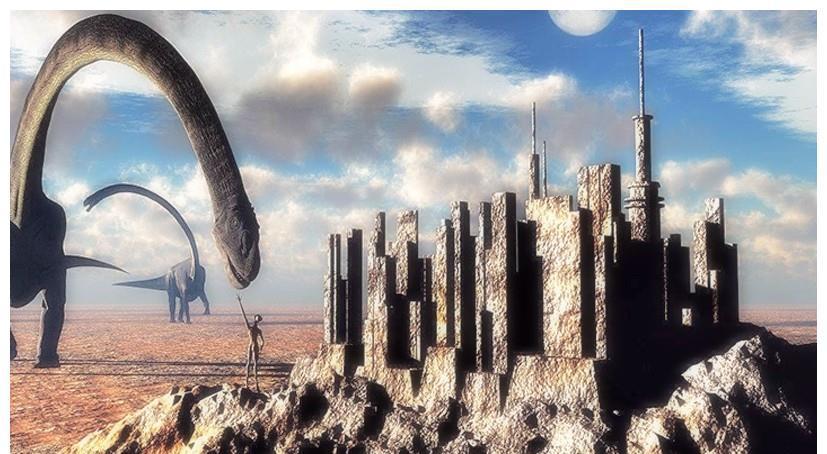L.S. Stavrianos, a Greek-American, is a prestigious American historian whose Book of The General History of the Globe – From Prehistory to the 21st Century has received worldwide repercussions. As a world history, L.S. Stavrianos has many sections in the book that describe the history of China.
What would foreigners say about China in their history books? 【Young Marshal Erzhu】 Take you to see:
[There are some views that are very unbearable]
L.S. Stavrianos believes that prehistoric civilizations first originated in Mesopotamia (ancient Babylon) in the Middle East, and that ancient Egypt, ancient India, and ancient China were all influenced by Middle Eastern civilizations.

According to the book, the earliest state in China was the Shang Dynasty around 1500 BC (1500 years later than ancient Egypt and 1000 years later than ancient India). The Shang Dynasty people were nomadic people from the northwest, and the Shang Dynasty people had military superiority because they mastered bronze technology and chariot technology from the Middle East. The Shang Dynasty invaded the Yellow River Valley in one fell swoop and conquered the local primitive tribes, and Chinese civilization began.
[Some of the views are relatively new]
◆ The General History believes that the greatest influence on China was in three years: in 221 BC, Qin Shi Huang conquered the whole country and established an imperial system. In 1911, the Xinhai Revolution eliminated the imperial system. The People's Republic of China was founded in 1949.
◆ The book believes that China is the only civilization that has no interruption. Why can Chinese civilization continue forever?
First of all, Chinese civilization is geographically remote, and the nomadic peoples who often deal with it are in a weak position in terms of population and civilization. Even when nomadic peoples come in, they will be assimilated by a large population and advanced culture.
Second, all kinds of Chinese philosophical schools pay attention to "practicality". Theocracy and religion not only did not challenge the ruler, but also cooperated well with the ruler. Confucianism allows more people to be conservative and solidified, and to keep their duties.
Third, Qin Shi Huang unified the script, laying the cultural cohesion of the nation. At the beginning of the Han Dynasty, Chinese civilization began to catch up with other civilizations. After the Han Dynasty, Chinese civilization has always been the country with the largest population, the richest economy and the most advanced civilization in the world.
[Some views are different from ours]
The book argues that Chinese weak dynasty in the standard: the Song Dynasty, which was precisely the "golden age" of the Chinese imperial era, and the culture and economy of the Song Dynasty reached the peak of the Chinese imperial era.
In fact, the Song Dynasty military was not so weak. When the Mongol cavalry conquered the Middle East further afield, it was very difficult for the Southern Song Dynasty to make progress, much more difficult than the conquest of the Middle East.
In addition, due to the only respect for Confucianism by the imperial examination system, over the centuries, Chinese intellectuals have produced a solidified concept of "orthodoxy", which has caused arrogance and conservatism in Chinese thought - resulting in a serious consequence, since the Song Dynasty, China's leading technology (navigation and the four major inventions) has had a very limited impact on the country, but after it was disseminated, it gave the West explosive development.
[Some common sense fallacies of L.S. Stavrianos]
First, the book takes the Shang Dynasty as the starting point of Chinese civilization, completely ignoring the records of the Xia Dynasty and Yao, Shun, and Yu in China's history books, and also ignoring the new archaeological discoveries such as Erlitou and Tao Temple in China.
Second, the book describes the reason for the fall of the Eastern Han Dynasty and the division into the three kingdoms of Wei, Shu, and Wu as caused by the invasion of Turkic-Mongol tribes.
Third, it confuses the difference between the "inspection and examination system" of the Han Dynasty and the "examination system" of the Sui and Tang Dynasties, and mistakenly believes that the "inspection and examination system" of the Han Dynasty is also a national examination and selection system.
Fourth, the interpretation of "Taoism" is very ridiculous, and the author explains that the "Tao" of the priests means "road".
On the whole, although foreigners can write Chinese history from some alternative perspectives, on the whole, the understanding of Chinese culture is a hard wound. As a non-native Chinese speaker studying Chinese culture, it is difficult to understand the breadth and profundity of Chinese culture.